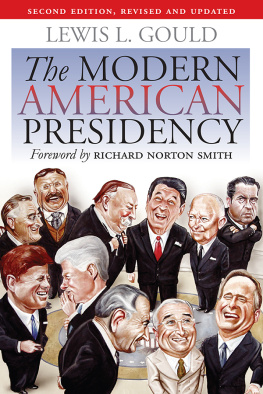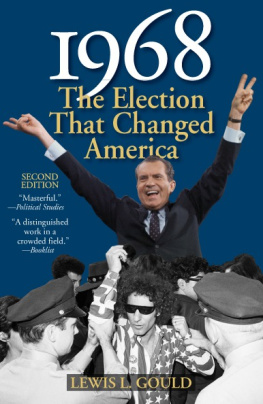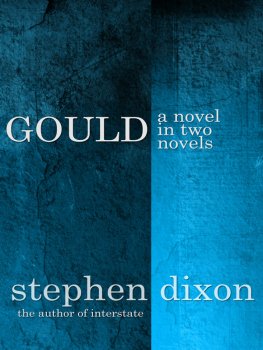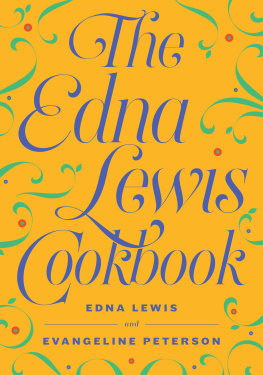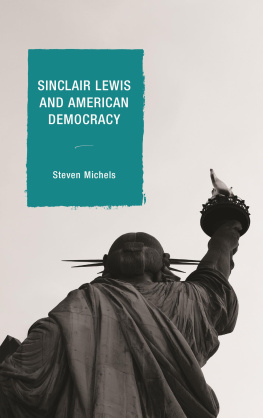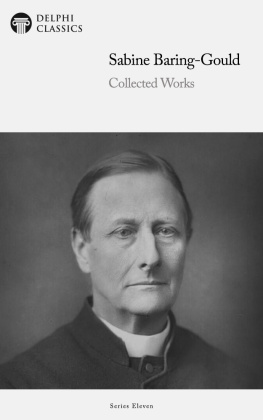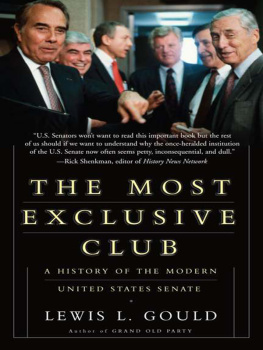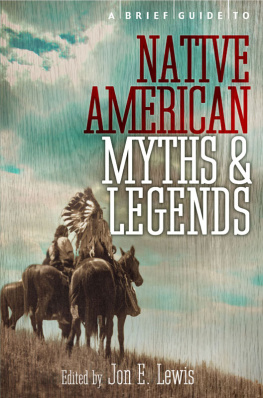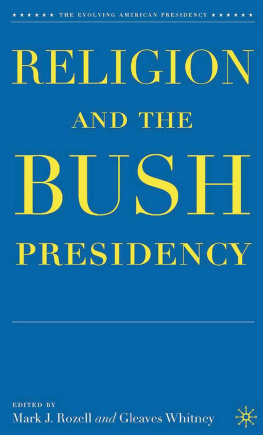2003, 2009 by the University Press of Kansas
All rights reserved
Published by the University Press of Kansas (Lawrence, Kansas 66045), which was organized by the Kansas Board of Regents and is operated and funded by Emporia State University, Fort Hays State University, Kansas State University, Pittsburg State University, the University of Kansas, and Wichita State University
Library of Congress Cataloging-in-Publication Data
Gould, Lewis L.
The modern American presidency / Lewis L. Gould ; foreword by Richard Norton Smith.2nd ed., rev. and updated.
p. cm.
Includes bibliographical references and index.
ISBN 978-0-7006-1683-1 (cloth : alk. paper)ISBN 978-0-7006-1684-8 (pbk. : alk. paper)ISBN 978-0-7006-2361-7 (ebook)
1. PresidentsUnited StatesHistory20th century. 2. PresidentsUnited StatesHistory21st century. 3. PresidentsUnited StatesBiography. 4. United StatesPolitics and government20th century. 5. United StatesPolitics and government21st century. I. Title.
E176.1.G68 2009
973.09'9dc22 2009020161
British Library Cataloguing in Publication Data is available.
Printed in the United States of America
10 9 8 7 6 5 4 3 2 1
The paper used in this publication is recycled and contains 30 percent postconsumer waste. It is acid free and meets the minimum requirements of the American National Standard for Permanence of Paper for Printed Library Materials Z39.48-1992.
preface to the second edition
When the first edition of The Modern American Presidency appeared in 2003, it seemed that the administration of George W. Bush was more likely to confirm the thesis of the book than to refute it. Yet any conclusion to that effect would have been premature given that the Bush presidency might well extend into a second term and an eight-year period in office. The presidents reelection in 2004 thus postponed any evaluation of the way in which this chief executive and his associates extended the troubling trends of continuous campaigning, celebrity politics, and inattention to governance so characteristic of the modern presidential office. With the end of the Bush presidency, it now becomes possible to locate his accomplishments within the overall development of the presidency since the McKinley years. The pessimistic verdict of the first edition on the future of the presidency turns out to have been too cautious. The institution was even more in crisis and the need for rethinking the presidency even more acute than the first edition claimed.
For this updated version of the book, a new chapter on George W. Bush has been added, the chapter about Bill Clinton includes some comments about the literature on his presidency, and the general conclusion has been revised. The suggestions for further reading reflect the publication of books on the various presidents that have appeared since 2003. John Morton Blum and Clarence G. Lasby read the Bush chapter and provided timely and incisive comments for substantive improvement and enhanced clarity. The various reviews and assessments of the first edition were helpful and much appreciated. If this second edition of The Modern American Presidency stimulates further debate about the role of the presidency in American life for the years ahead, it will have fulfilled its purpose.
Lewis L. Gould
foreword to the first edition
That Theodore Roosevelt is the father of the modern presidency is an article of faith among historians of the executive office. Only the boldest of revisionists would contest the claims of that swashbuckling egoist, whose flair for melodrama helped transform the presidency from chief administrative officer to a kind of permanent morality playscripted, directed, and performed by the dervish Henry Adams called pure act. Besides, if TR isnt the genesis of todays highly scripted, image-hungry White House, then who is? George B. Cortelyou?
George B. who? He may not be a household name, even in political science circles, but according to Lewis L. Gould it was Cortelyou, working in tandem with President William McKinley, who anticipated much of the modern chief executives role as newsmaker, agenda setter, public educator, and uber celebrity. Seventy years before Richard Nixon scribbled malign notes in the margins of his daily press summary, Cortelyou supplied McKinley with current clippings. Nearly a century before the Clinton White House operated a War Room reflecting the more or less permanent campaign that has all but engulfed the Oval Office, Cortelyou unveiled a nineteenth-century version. For it was under McKinley that the United States edged onto the world stage, focusing attention on the White House as incubator of American foreign policy.
That winners write history is axiomatic. Gould understands that luck and timing also rank high among the factors influencing posteritys judgment. No one illustrates this better than the last president of the nineteenth century. McKinley had the misfortune to be succeeded by Theodore Roosevelt, whose instinctive grasp of leadership rode the crest of the emerging mass media. Taft is a far abler man than I, he once wrote of his ill-fated successor, but he dont know how to play the popular hero and shoot a bear. Ever since, TR and his self-proclaimed preacher president cousin Franklin have been canonized as patron saints of executive activism.
By contrast, less aggressiveor more administratively mindedpresidents have been largely written off by scholars. It is a rare historian indeed who credits Taft with anticipating the modern Office of Management and Budget or Warren Harding with plans to establish a postWorld War I Department of Defense. Gould is such a historian. In fashioning a work of historical analysis aimed at the elusive target of the general reader, he understands that an American president is more than the dramatist-in-chief. Constitutionally, if not always temperamentally, he is also a manager of events for whom the prevention of crisis is as important as crisis management.
In this thoughtful, comprehensive, deeply researched volume, Gould skillfully draws lines of institutional continuity at the expense of what might be called the fat pope, thin pope theory of alternating executive styles. He grounds the presidency in ways that challenge popular stereotypes. Consider his treatment of Calvin Coolidge, that most prosaic of passive-negative leaders. Do the roots of twenty-first-century White House spin really lie in Coolidges shrewd use of radio, his frequent press conferences, and his cultivation of Hollywood and other celebrities? Gould believes they do. Likewise, he argues for Dwight Eisenhower as a more naturally gifted bureaucratic innovator than FDR. Ikes military background helped to inspire the National Security Council and the White House Office of Congressional Relations, and his preference for indirect or hidden-hand guidance handed the poisoned chalice of visibility to surrogates. Thus, Sherman Adams became the most detested chief of staff until Nixons H. R. Haldeman, or the first Bushs John Sununu (what is it about New Hampshire governors?).
If the presidency observes any law, Gould tells us, it is the law of unintended consequences. Harry Truman and Eisenhower were the least imperial of men (even if the latter displayed little reluctance to use the new CIA for covert operations in Latin America and the Middle East). Yet their response to Cold War pressures restructured the White House along lines that foreshadowed later abuses of power. For example, by citing executive privilege to shield White House staff members from Senator Joseph McCarthys subpoenas, Eisenhower created a dangerous standard for his successorsNixon, above allwho lacked his unique prestige earned in war.


